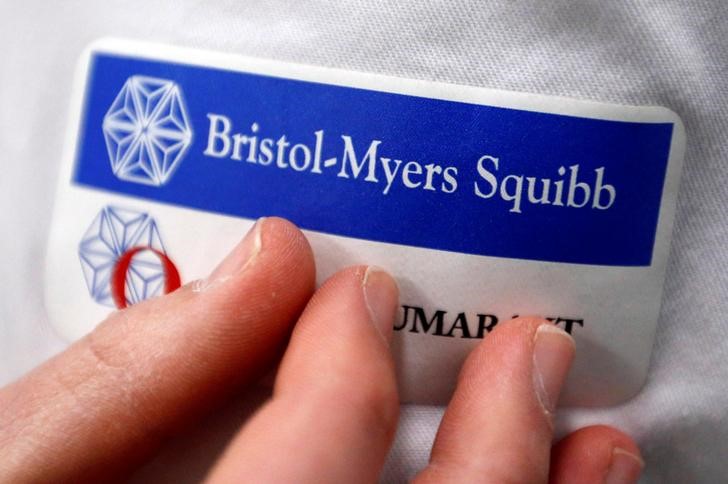Oracle stock falls after report reveals thin margins in AI cloud business
PRINCETON, N.J. - Bristol Myers Squibb (NYSE: BMY), a pharmaceutical giant with a market capitalization of $101 billion and current trading price of $49.82, today disclosed the outcomes from its Phase 3 ARISE trial, which evaluated Cobenfy, a potential adjunctive treatment for schizophrenia. According to InvestingPro analysis, the company appears undervalued at current levels, making it particularly interesting for value investors watching this development. The trial’s primary endpoint, a statistically significant change from baseline in the Positive and Negative Syndrome Scale (PANSS) score at Week 6, was not met when compared to placebo.
The study, involving adults with inadequately controlled schizophrenia symptoms, showed a 2.0-point reduction in the PANSS total score with Cobenfy in combination with an atypical antipsychotic, versus placebo with an atypical antipsychotic. However, this did not reach the threshold for statistical significance (P = 0.11).
Despite the primary endpoint not being met, a numerical improvement in symptoms was observed in the Cobenfy group. Additionally, a post-hoc subgroup analysis indicated a notable difference in response among subjects treated with risperidone as their background therapy compared to other antipsychotics. This development comes as Bristol Myers maintains strong financial fundamentals, with a robust gross profit margin of 75.26% and annual revenue of $48.3 billion.
Cobenfy’s safety and tolerability profile was consistent with that seen in previous monotherapy trials, and further analysis of the trial data is planned. The company aims to discuss potential next steps with regulators.
Husseini Manji, MD, FRCPC, Co-Chair, UK Government Mental Health Goals Program and Professor at Oxford University, commented on the challenges of demonstrating additional benefits in patients already under treatment. He noted that the trial’s findings, while not statistically significant, showed an improvement for the majority of patients and a tolerable safety profile.
Samit Hirawat, MD, executive vice president at Bristol Myers Squibb, acknowledged the difficulties in developing effective adjunctive treatments for schizophrenia. He emphasized the company’s commitment to research in this area and indicated that Cobenfy monotherapy has demonstrated positive efficacy and safety in previous studies.
Bristol Myers Squibb has a robust clinical development program for Cobenfy across multiple neuropsychiatric conditions and intends to present detailed results from the ARISE trial at an upcoming medical conference. With the company’s next earnings report due in 2 days, InvestingPro subscribers can access 12 additional key insights and a comprehensive Pro Research Report, offering detailed analysis of BMY’s financial health and growth prospects. The company extends its gratitude to the patients, investigators, and clinical trial sites involved in the study.
This article is based on a press release statement from Bristol Myers Squibb.
In other recent news, Bristol-Myers Squibb Co. disclosed that its Phase 3 ODYSSEY-HCM trial for Camzyos did not achieve its primary endpoints in treating non-obstructive hypertrophic cardiomyopathy (nHCM). Despite the setback, no new safety concerns were identified, and the drug’s efficacy in treating obstructive HCM remains unaffected. Analysts from BMO Capital Markets have maintained a Market Perform rating with a $61 price target, while Citi analyst Geoff Meacham reiterated a Neutral rating with a $55 target, emphasizing the importance of the company’s growth portfolio amidst the trial’s results. Similarly, Cantor Fitzgerald and Goldman Sachs have both issued Neutral ratings with a $55 price target, reflecting a cautious outlook on Bristol-Myers Squibb’s potential growth amid challenges like the redesign of Medicare Part D and generic competition. The company’s upcoming ARISE trial results for Cobenfy in schizophrenia are now a key focus for investors, with Goldman Sachs suggesting a positive outcome could lead to a modest stock upside. Bristol-Myers Squibb continues to face challenges related to patent expirations and must navigate these alongside its growth initiatives. Investors and analysts will closely watch the company’s strategic responses and upcoming trial outcomes.
This article was generated with the support of AI and reviewed by an editor. For more information see our T&C.
